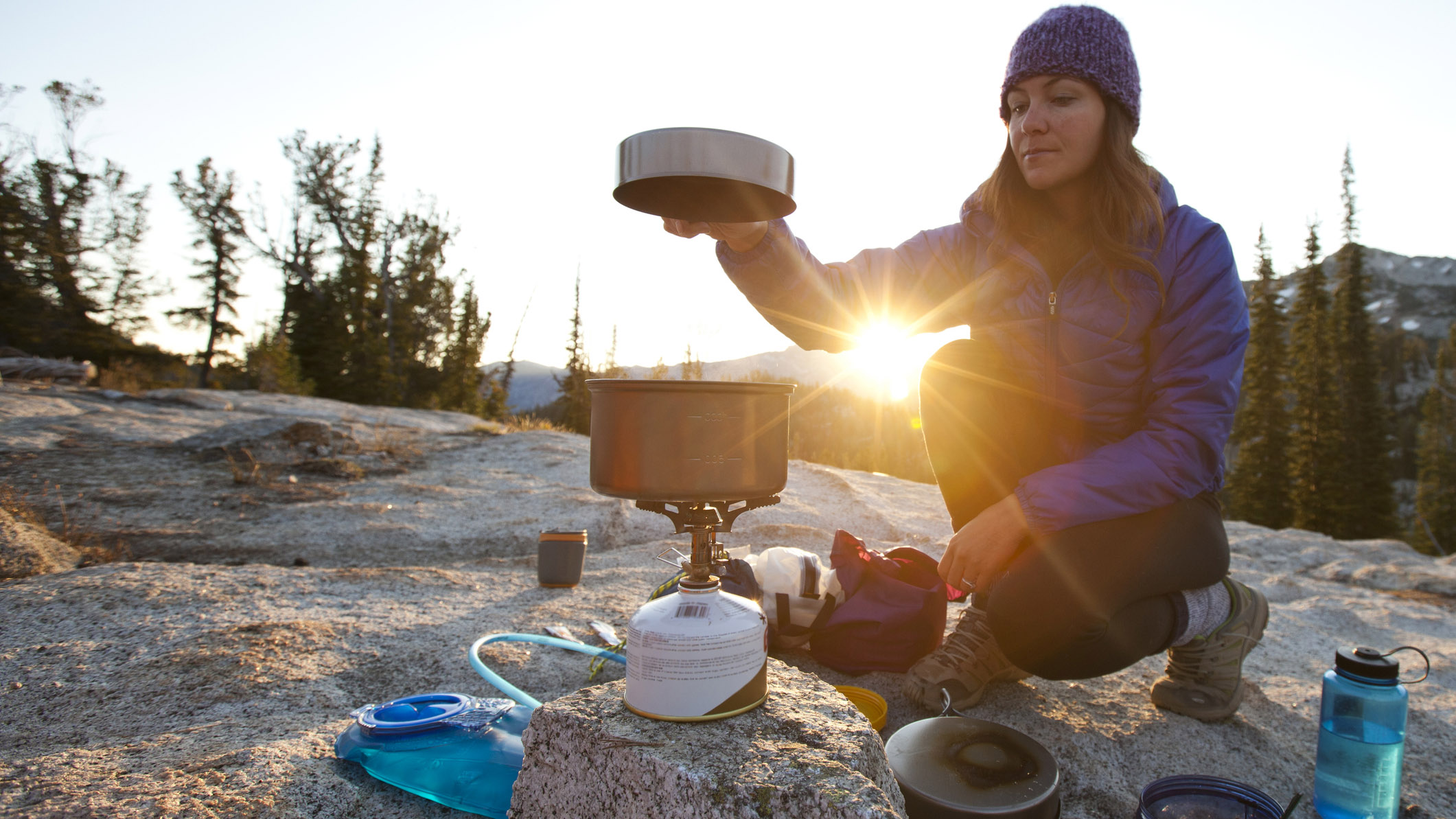
Mashed potatoes are the sort of food you dream of when you’re backpacking. You’ve been walking all day, you have a gnawing hunger in the pit of your stomach and for the last few miles all you can think about is spooning heaps of creamy, buttery mash into your mouth.
So at your next refuel stop, it makes sense that you pick up a few packets of instant mashed potatoes. When you get to camp that night and fire up your camping stove, however, you realize you’re missing the key ingredients that make mashed potatoes so excellent: butter and milk. They’re palatable and they’ll fill you up, but the reality definitely doesn’t match the fantasy.
Don’t worry – many hikers before you have fallen into this trap. Back in 2001, my friend Shawn was hiking the Appalachian Trail and a bear stole his food supply (which had been responsibly hung up in a tree in a bear bag). Rather irresponsibly, he tried to get it back and failed, leaving him with no food and several days till his next refuel point.
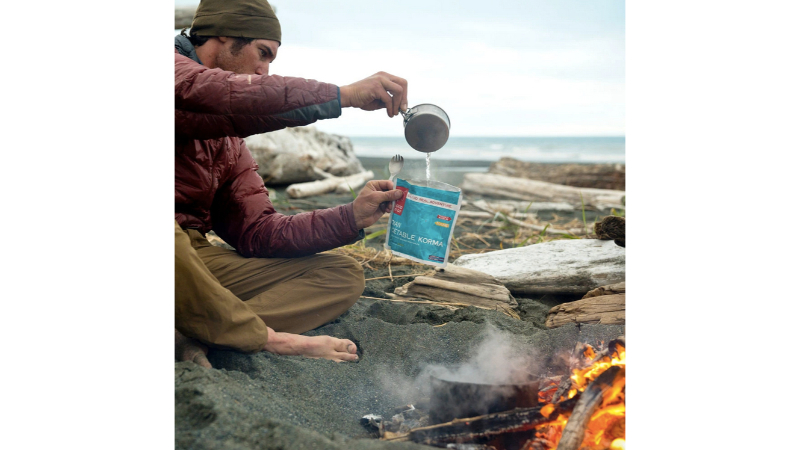
Luckily, this was the AT and other hikers were happy to help out. Along the way, upon hearing of his woes, other hikers plied him with their precious food so that he might not starve. What did he get? Exclusively instant mashed potatoes. Packets and packets of them. Everybody had them, nobody wanted them.
Are instant mashed potatoes the best backpacking food ever? After all, everyone on the world’s most famous distance trail carries so much they have extra. But why is everyone so keen to give theirs away? And more importantly, if you’re heading out on a backpacking trip or thru-hike, should you stock up on instant mashed potatoes, or will they just take up room in your backpack? Let’s take a look at the pros and cons of instant mashed potatoes for backpacking.
Instant mashed potatoes for backpacking: the pros
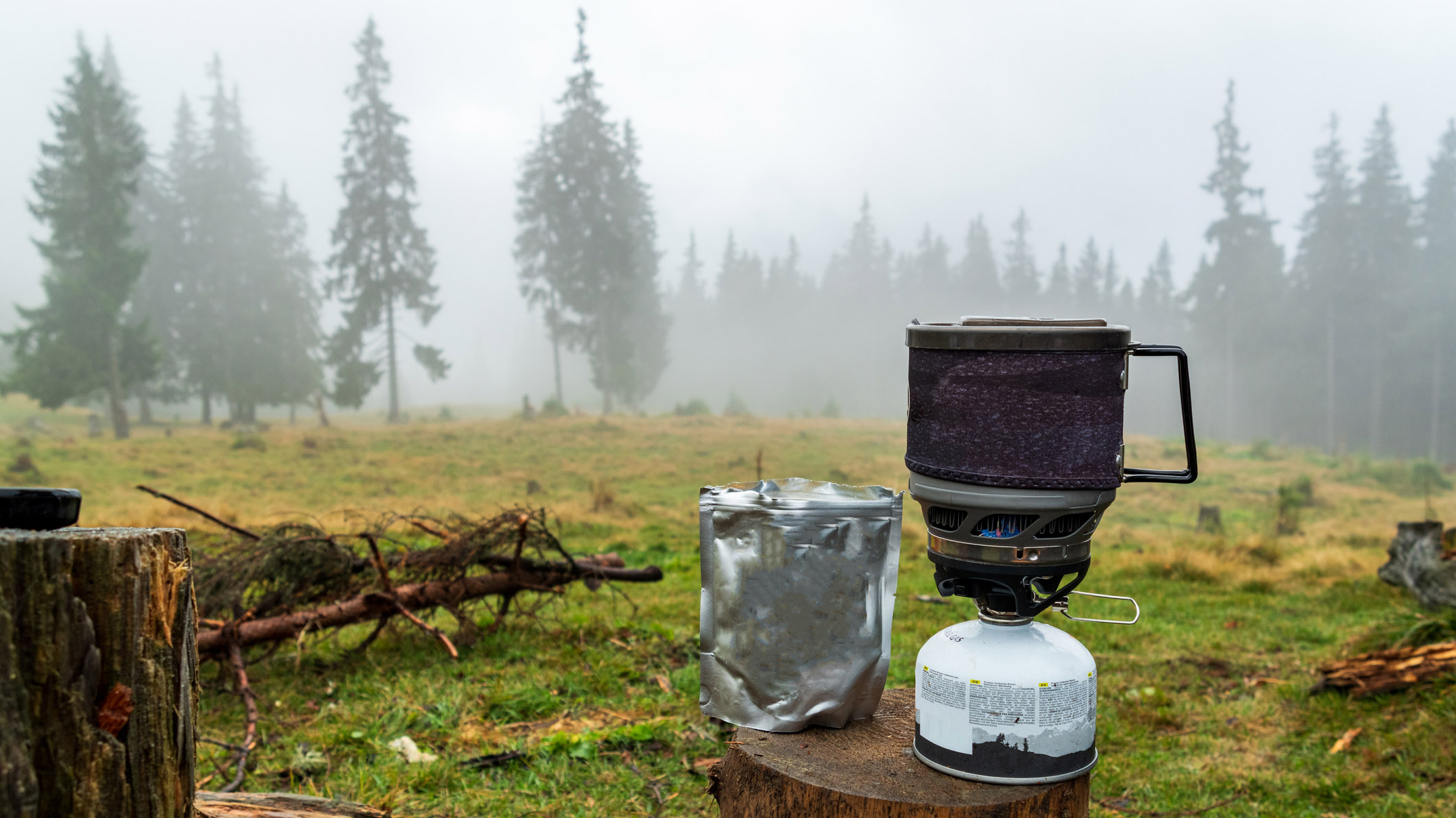
Easy cooking
Like pretty much any dehydrated backpacking food, instant mashed potatoes are super easy to make. At home, you’d cook them up with water, milk and butter but of course on the trail, you most likely won’t be carrying any dairy products. That said, you can still use other ingredients to bring them to life, such as dried herbs and spices and salami, or mix it up with a freeze-dried camping meal.
Compared to rice and pasta, other carbohydrates which take more cooking, instant mashed potatoes are quicker and use less fuel.
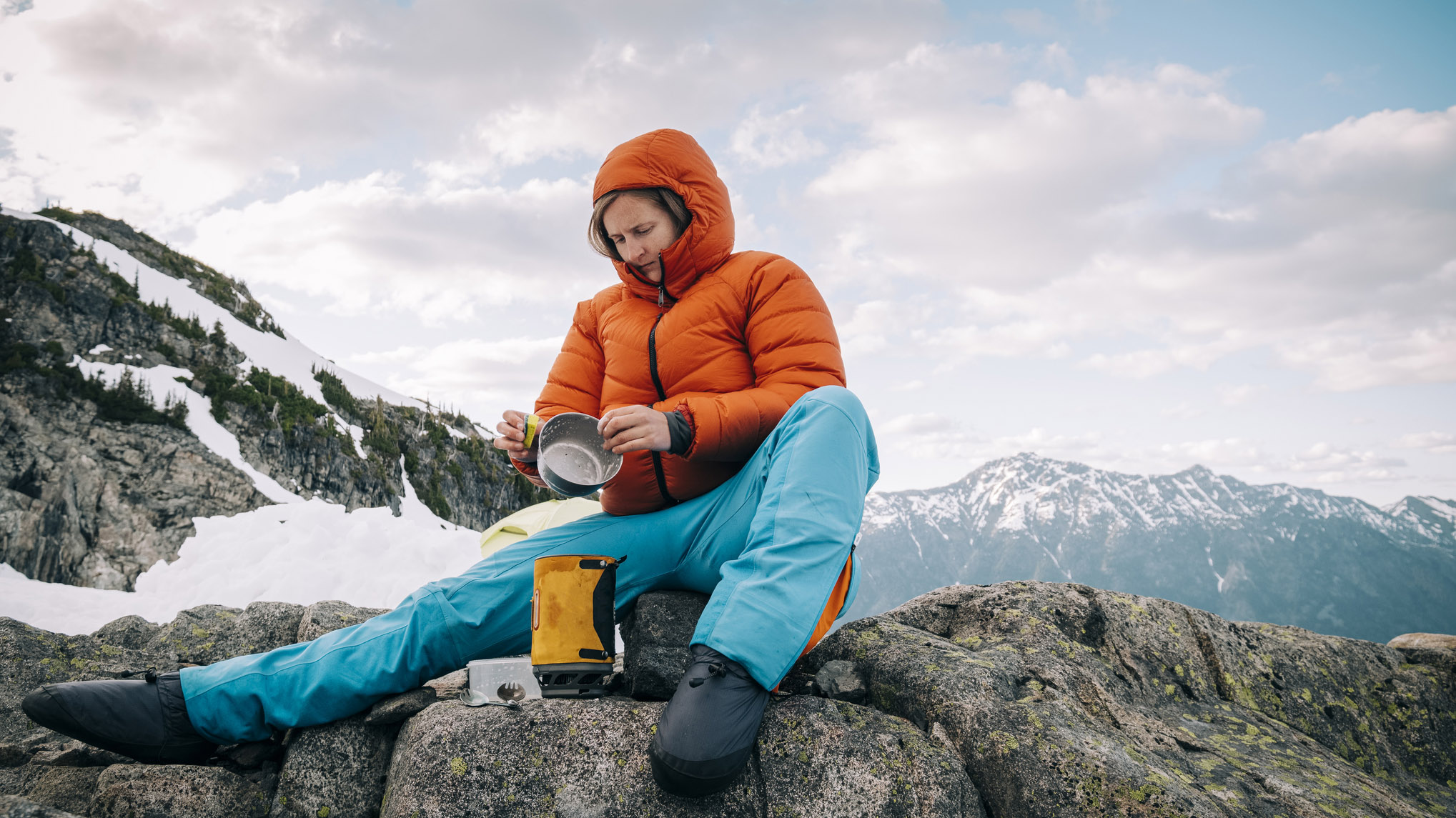
Tummy filling
Potatoes, even dehydrated ones, are usually pretty filling, and at the end of a long day of walking with a heavy pack, mostly what you want is for the rumbling in your tummy to go away. Though some campers like to make their instant mash the main event, by dressing it up with some chorizo or jerky, the most filling option is to mix your mash with another backpacking meal, while many argue that pasta is more filling.
Good source of carbohydrates and fiber
A packet of Betty Crocker Creamy Butter Mashed Potatoes claims to contain 4.5 servings, but let's be honest, you could eat the whole packet. For argument’s sake though, let’s say you decide to ration it out and prepare half a packet at once, which is the equivalent of just over two servings. That gets you over 15 percent of your daily recommended carbohydrates as well as 11 percent of your daily fiber, something that can be hard to get enough of on the trail which is why you're always constipated. You’ll get a similar amount of carbs from two servings of rice, but instant mash weighs less and offers more fiber and potassium, great for those calf cramps.
So for backpacking, the nutritional benefits are more persuasive than other carbohydrates, but do keep reading till the end because these pouches also pack a lot of sodium.
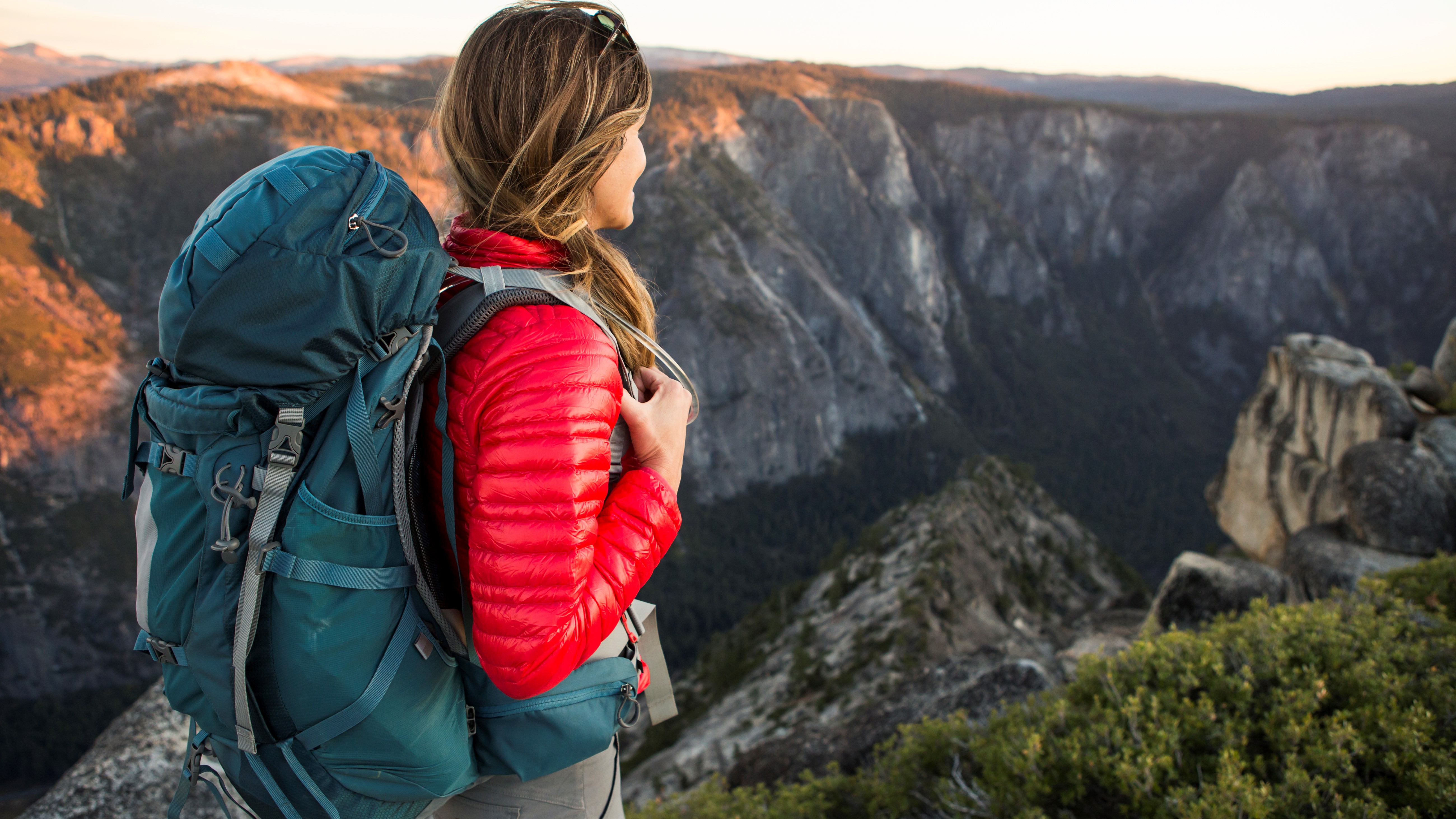
Versatile
Instant mashed potatoes don’t exactly make a whole meal, but they are pretty versatile, even on the trail. You can eat them plain or with dehydrated cheese or meat. You can mix them in with a freeze dried chili, stew or curry for dinner. Are they more versatile than rice, pasta or noodles? Not really, but basically you can lump them in with whatever you want.
Cheap
Finally, as far as prepackaged food goes, instant mashed potatoes are pretty cheap. Most of the brands available on Amazon come in at around $1.19 per packet, and again we’re assuming that each packet might last you two meals. For a 5 - 7 night backpacking trip, you might not bat an eye at picking up a few packets. Compared to buying a sack of rice and portioning it out, instant mash isn’t the cheapest option, but it’s a lot cheaper than a lot of other dehydrated camping meals (though again, it doesn’t really make a meal in itself). Remember that you’ll use less fuel cooking potatoes than pasta or rice, so you’ll save more money there too.
Instant mashed potatoes for backpacking: the cons

They don’t have a ton of calories
When you’re covering huge distances each day, you want a lot of calories and food doesn’t just have to be light, it needs to keep you fueled. These Idahoan Mashed Potatoes are pretty standard, with 100 calories per serving. If you eat two servings at a time then you’re doing alright, but you’ll get more calories per bite from rice and pasta.
They're high in sodium
One place to watch out for when relying heavily on instant mashed potatoes for your carb fix is that these preparations usually contain a lot of sodium. Even though you do need to replace sodium lost through sweat on the trail, each time you eat a half packet you’re usually getting about 40 percent of your daily recommended sodium intake. Add to that the fact that you’ll be mixing it with other foods that probably also contain salt and eating two other meals plus salty snacks all day and you could be going overboard. Rice and pasta, on the other hand, have virtually no sodium between them, which means you can really load up on them without worrying.
They’re boring
Let’s be honest, the main reason the AT hikers couldn’t wait to offload their instant mash was because they’re bland, especially when you don’t have cheese and chives on hand. Sure, mashed potatoes on the trail sounds like a good idea, and you probably have lofty goals of combining yours with a dehydrated stew to make a backcountry Shepherd’s Pie, but in reality it’s just a load of mush. As the days and weeks go on, the last thing you want is another serving of reconstituted mashed potatoes and before you know it, you’re dishing yours out to unfortunate hikers who have lost their daily rations to a hungry bear.

Are instant mashed potatoes good for backpacking?
As you can see, there are lots of benefits to instant mashed potatoes for backpacking. Namely, they’re cheap, light, easy to prepare and reasonably versatile, and they are a great source of fiber. Other sources of carbs that you might take with you, such as rice and pasta, do deliver more calories per serving, and are a bit more filling, but they take a bit more fuel and time to prepare. Then again, you’ve also got that high sodium factor to take into account.
The best option for a long backpacking trip is probably to take a variety of carbs – potatoes, rice, couscous and pasta – so you can mix things up and not go crazy, and try not to go overboard on the salt.







